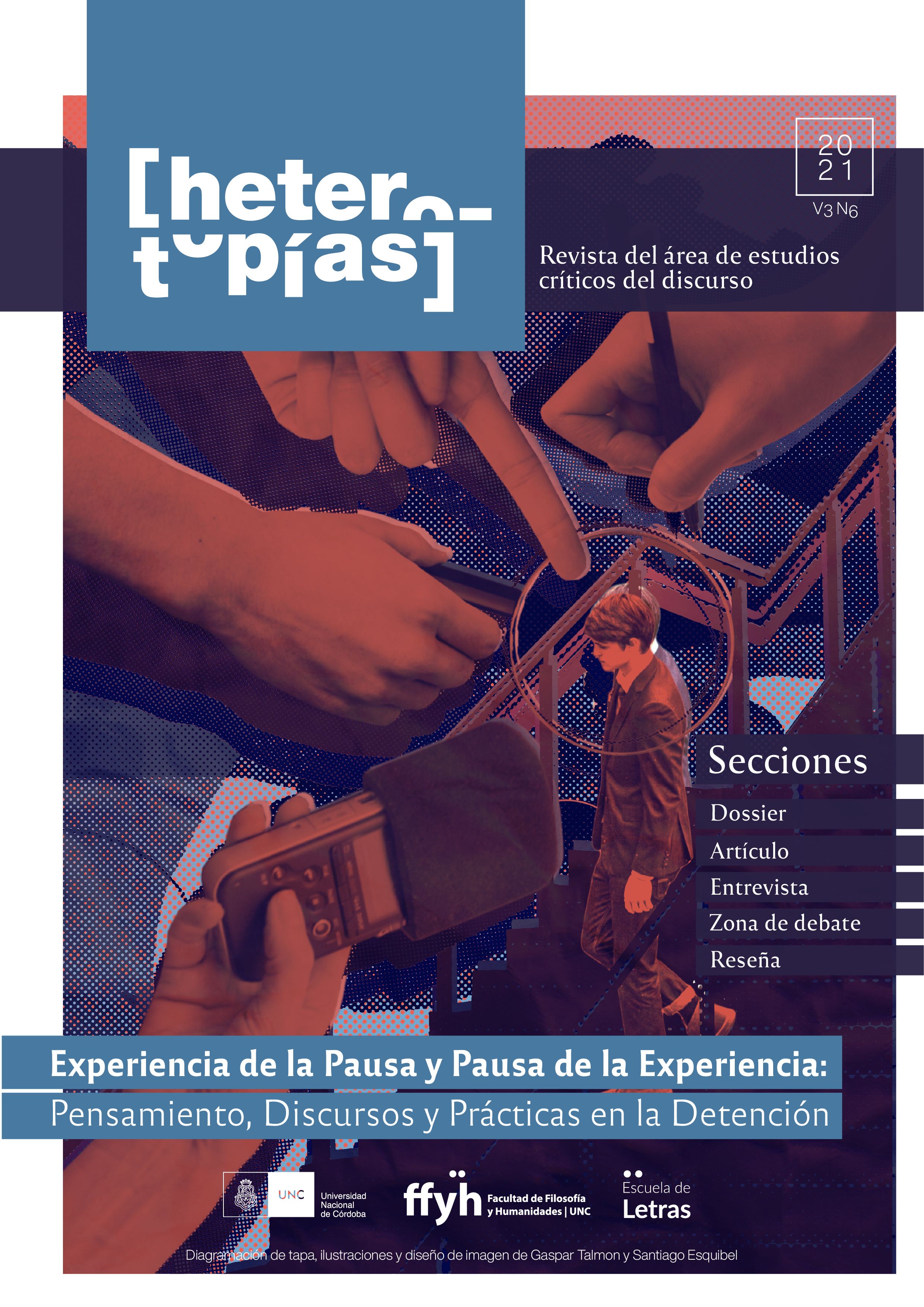A pause to smoke. Cannabis in contempory argentinean poetry
Main Article Content
Abstract
Poems that talk about marihuana and, then, start to be spoken by it. How is this possible? In witch moment the poem started to talk about cannabis so then cannabis could talk in the poem? This paper purpose a critic itinerary across that possibility in order to read contemporary Argentinean poetry in the dialogues between writing and cannabis as pausing substances.
Downloads
Article Details
Section

This work is licensed under a Creative Commons Attribution-NonCommercial-ShareAlike 4.0 International License.
Those authors who have publications with this journal, accept the following terms: Those authors who have publications with this journal, accept the following terms:
a. The authors will keep their copyright and guarantee to the journal the right of first publication of their work, which will be simultaneously subject to the Creative Commons Attribution - Non-Commercial - Share Alike (by-nc-sa) Attribution License; no commercial use of the original work or any derivative works is allowed, the distribution of which must be done with a license equal to the one that regulates the original work.
b. Authors may adopt other non-exclusive license agreements for the distribution of the published version of the work (e.g., deposit it in an institutional telematic archive or publish it in a monographic volume) provided that the initial publication in this journal is indicated.
c. Authors are allowed and recommended to disseminate their work through the Internet (e.g. in institutional telematic archives or on their website) before and during the submission process, which may lead to interesting exchanges and increase the number of citations of the published work. (See The effect of open access).
How to Cite
References
Barea, Federico (edición y selección) (2016). Argentina Beat. Derivas literarias de los grupos OPIUM y SUNDA 1963-1969. Buenos Aires: Caja negra.
Berger, Timo (1999). No soy gay soy bi. Buenos Aires: Deldiego.
González, César (2010). La venganza del cordero atado. Buenos Aires: Continente.
Blatt, Mariano (2014). Alguna vez pensé esto. Buenos Aires: Triana.
Blatt, Mariano (2015). Mi juventud unida. Buenos Aires: Mansalva.
Callero, Fernando (2013). “Casi todos los poetas fuman porro” en Monchietti, Gervasio y Collosa, Lucas. Yo soñaba con comprarme una combi. Selección de poesía santafesina contemporánea. Santa Fe: Erizo editora.
Cumin, Larisa (2018). La escapista. La Plata: Club Hem.
Delgado, Ariel (2010). El último clásico. Paraná: Ese es otro que bien baila.
Fariña, Oscar (2011). El guacho Martín Fierro. Buenos Aires: Factotum.
Gouiric, Mariela (2012). Tramontina. Bahía Blanca: Vox.
Gouiric, Mariela (2014). Decime qué se siente. Se siente hermoso. Buenos Aires: Belleza y Felicidad.
Gouiric, Mariela (2016). Un método del mundo. Buenos Aires: Blatt&Ríos.
Ioshua (2008). Para los pibe. Buenos Aires: Belleza y Felicidad.
Lopez, Milton (2012). El quinto sueño. Rosario: Iván Rosado.
Orge, Bernardo (2014). Folk. Rosario: EMR.
Pontoni, Santiago (2011). ¡Kowabunga! Santo Tomé: Diatriba.
Roca, Florencia (2014). Los poemas en potencia. Mar del Plata: Honesta.
Rodriguez, Tálata (2016). Soy tu perro y otros poemas de grupi. Buenos Aires: Belleza y Felicidad.
Sticchi, Emmanuel (2011). Enamorado para siempre. Mar del Plata: Goles Rosa.
